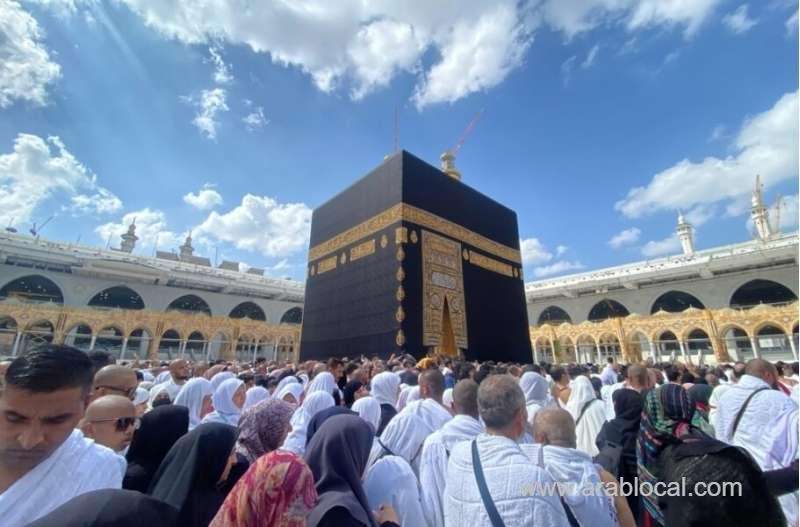
On 26 May 2024, Dr. Khaled Abdul Hadi, head of the medical unit in the Qatari Hajj delegation, explained the readiness of the Hajj delegation’s medical services, which will work around the clock to provide the necessary health care to the pilgrims of Qatar in Mecca and the Holy Sites for this year 1445 AH.
A specialized team of doctors accompanies the Qatari Hajj delegation
The head of the medical unit stressed that Qatar is keen to provide all the necessary capabilities, equipment, medicines and treatments for Qatari pilgrims in all Qatari Hajj campaigns, with a specialized cadre of doctors, nurses, paramedics and pharmacists accompanying the Qatari Hajj delegation. To provide high-level health services that guarantee the safety and health of the country’s pilgrims so that they can perform Hajj rituals in the best conditions.
RELATED: Public Health Ministry Outlines Vaccination Requirements For Hajj
Tasks and specializations of the medical unit during the Hajj season
Dr. Khaled Abdel Hadi said that the mission of the medical unit is to provide complete health care to the country’s pilgrims, accompany the pilgrim wherever he goes and intervene quickly when needed. There are also rooms designated for hypnosis, observation and isolation in cases that require medical isolation for any patient, as well as in the Holy Sites in Mina and Arafat. There are clinics to triage patients, clinics for men and women for hospitalization, observation, and isolation. The pilgrims in Muzdalifah are accompanied by an equipped medical team to provide health services and first aid. The unit also has two accompanying ambulances.
The medical staff accompanying the Qatari Hajj delegation are among the most skilled specialist doctors, including family doctors, epidemiologists, and emergency doctors, in addition to a nursing team, paramedics, and pharmacists.
Components of the medical unit at the Hajj delegation headquarters
He added, "at the headquarters of the Qatari Pilgrims Affairs Office in Makkah Al-Mukarramah, we created an entire floor for isolation, divided into one part for male Qatari pilgrims and another for female pilgrims, and there is also a special clinic to triage patients in which the triage will determine whether they actually need immediate isolation or physical treatment. For cases that need to be provided with treatment, whether in men’s or women’s clinics, we have also prepared another floor for clinics, in addition to allocating a third floor at the bottom of the building for a quick inspection."
Complete coordination with medical units in Hajj campaigns
Dr. Khaled Abdel Hadi said that communication with the campaigns in Mecca is the responsibility of the mission’s communications unit, which is concerned with communicating and linking all Qatari Hajj campaigns and taking care of every Qatari pilgrim during the Hajj season, in addition to direct coordination and communication with the medical unit in light of any medical condition that requires rapid intervention, whether by ambulance or immediate doctor’s examination of this patient.
Cooperation with private hospitals for emergency cases
Dr. Khaled Abdul Hadi confirmed that the medical unit in the Office of Qatari Pilgrims Affairs in Makkah Al-Mukarramah has already signed a contract with Al-Ahli Saudi Private Hospital, which is It is located near the residence of Qatari pilgrims and other private hospitals in the Mecca Towers overlooking the Haram.
A medical team and full care for Arafa, Muzdalifah and Mina
Dr. Khaled Abdul Hadi explained that there would be complete and continuous coordination in this regard through the communication and line unit, stressing that all the medical unit crews in the Qatari Pilgrims Affairs Office will be present around the clock wherever the Qatari pilgrims are, noting that the "medical team is present in our clinics at the main headquarters for men and women and in Mina and Arafat and also in Muzdalifah".
Medical instructions that pilgrims must follow
The head of the medical unit said that there are instructions before travelling to Hajj, the most important of which is that it is required and obligatory for every pilgrim to obtain the important vaccines for the Hajj season, the first of which is the seasonal influenza vaccine and the vaccine and the second is meningitis. Likewise, every pilgrim with chronic diseases should see his doctor and take sufficient medication for him throughout the duration of Hajj and its rituals. He should also check with the doctor about his health condition before departure and whether he is able to perform Hajj or not. He noted that the rules are the same for all pilgrims who suffer from chronic diseases, like high blood pressure, allergies, asthma, or other chronic diseases and that they should consult their personal doctor before travelling and follow his instructions carefully.
Vaccinations are available in all health centres
Dr. Khaled Abdel Hadi revealed that vaccinations are available in all health centers at the Primary Care Corporation, and pilgrims can take vaccinations starting 26 May 2024 at any of the health centres spread throughout the country. The vaccination period is no less than fourteen days before travel until it takes effect well.
It is necessary to be cautious and prevent infectious diseases, and this requires every pilgrim to take caution and wear a mask inside and outside the headquarters. Personal hygiene must also be continuously maintained. Bring enough clothing to avoid skin and infectious diseases, wash hands, and perform ablutions regularly.
The Hajj season this year will be hot. Therefore, the pilgrim must take precautions to avoid sunstroke and drink plenty of water and fluids on an ongoing basis. It is also preferable to bring with him an umbrella to protect himself from the sun’s rays while performing rituals.
Medical guidelines for diabetics
Dr. Khaled Abdel Hadi urged every pilgrim with diabetes to have a small bag containing ice and insulin needles or a small refrigerator to store the medicine and maintain the effectiveness of the insulin and to have a special bag for all the medications and treatments he needs throughout the Hajj season and to make sure it is in a cool place.